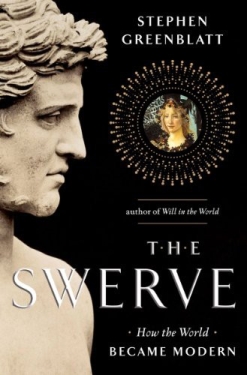- HOME
- INTRO TO THE FORUM
- USE AND MISUSE
- BADLY WRITTEN, BADLY SPOKEN
- GETTING
TO KNOW ENGLISH - PREPARING FOR ENGLISH PROFICIENCY TESTS
- GOING DEEPER INTO ENGLISH
- YOU ASKED ME THIS QUESTION
- EDUCATION AND TEACHING FORUM
- ADVICE AND DISSENT
- MY MEDIA ENGLISH WATCH
- STUDENTS' SOUNDING BOARD
- LANGUAGE HUMOR AT ITS FINEST
- THE LOUNGE
- NOTABLE WORKS BY OUR VERY OWN
- ESSAYS BY JOSE CARILLO
- Long Noun Forms Make Sentences Exasperatingly Difficult To Grasp
- Good Conversationalists Phrase Their Tag Questions With Finesse
- The Pronoun “None” Can Mean Either “Not One” Or “Not Any”
- A Rather Curious State Of Affairs In The Grammar Of “Do”-Questions
- Why I Consistently Use The Serial Comma
- Misuse Of “Lie” And “Lay” Punctures Many Writers’ Command Of English
- ABOUT JOSE CARILLO
- READINGS ABOUT LANGUAGE
- TIME OUT FROM ENGLISH GRAMMAR
- NEWS AND COMMENTARY
- BOOKSHOP
- ARCHIVES
Click here to recommend us!
READINGS IN LANGUAGE
This section features links to interesting, instructive, or thought-provoking readings about the English language and related disciplines. The selections could be anywhere from light and humorous to serious and scholarly, and they range widely from the reading, writing, listening, and speaking disciplines to the teaching and learning of English.
Recovered ancient manuscript changes course of human thought
In the year 1417, in a monastery in southern Germany, an unemployed papal scribe named Poggio Bracciollini stumbled upon the manuscript of a long poem that dates back to between 100 BC and 55 BC. The manuscript, De Rerum Natura (On the Nature of Things) by Titus Lucretius Carus, was a Roman philosophical epic that completely disappeared during the early Christian era. It was a dangerously revolutionary and heretical book, for contrary to prevailing belief, it declared in no uncertain terms that the universe functioned without the intervention of gods, that religious fear was ruinous to human life, and that matter ultimately consisted of very tiny particles in eternal random motion.

How these ideas took wing in 15th century Renaissance Europe and eventually shaped modern thought forever forms the fascinating narrative of Stephen Greenblatt’s The Swerve: How the World Became Modern (W. W. Norton & Company, 356 pages). Greenblatt, humanities professor at Harvard University and highly acclaimed author of several books on literary history, tells the story in the context of his own discovery of a prose translation of Lucretius in the mid-1960s. A Yale University student at the time and searching for summer reading, Greenblatt plucked the book from a Yale Co-op bargain bin after his eye was attracted by its sexy cover, a pair of disembodied legs floating above the Earth in what appeared to be an act of “celestial coition.”
Greenblatt saw that Poggio Bracciollini’s recovery of the ancient Lucretius manuscript wasn’t only a crucial but a truly incredible turning point in mankind’s history. He then embarked on a deep, intense study of the book’s philosophy and provenance, an undertaking that took him to Bracciollini’s fascinating medieval world of book collecting and paper making, libraries, and the monks’ almost sexual obsession with excellent penmanship at a time when books had to be copied for posterity entirely by hand.
Says Newsday in its review of The Swerve: “Pleasure may or may not be the true end of life, but for book lovers, few experiences can match the intellectual-aesthetic enjoyment delivered by a well-wrought book. In the world of serious nonfiction, Stephen Greenblatt is a pleasure maker without peer.”
Read an excerpt from Stephen Greenblatt’s The Swerve at NPR.org now!
Read Dwight Garner’s “An Unearthed Treasure That Changed Things” in The New York Times now!
Read Jane Smiley’s “From medieval to modern” in TheGlobeandMail.com now!
ABOUT THE AUTHOR:
Stephen Greenblatt, PhD, is Cogan University Professor of the Humanities at Harvard University. Also General Editor of The Norton Shakespeare, he is the author of eleven books, including Shakespeare’s Freedom; Will in the World: How Shakespeare Became Shakespeare; Hamlet in Purgatory; Practicing New Historicism; Marvelous Possessions: The Wonder of the New World; and Learning to Curse: Essays in Early Modern Culture. He is a former president of the Modern Language Association of America and is a fellow of the American Academy of Arts and Sciences, the American Philosophical Society, and the American Academy of Arts and Letters.
ANOTHER INTERESTING READING:
In “Words of America: A Field Guide,” a review of the Dictionary of American Regional English: Volume I—A–C in the September/October 2011 issue of Humanities magazine, English associate professor Michael Adams describes the book as “the treasure-house for the all-American word hoard” and “a bold synthesis of linguistic atlas and historical dictionary.” “Scholars of American language, history, and culture will rely on it, and they will enjoy it as much as lay readers,” he says.
Read Michael Adams’s Dictionary of American Regional English in Humanities now!
Click to read comments or post a comment
View the complete list of postings in this section
(requires registration to post)






